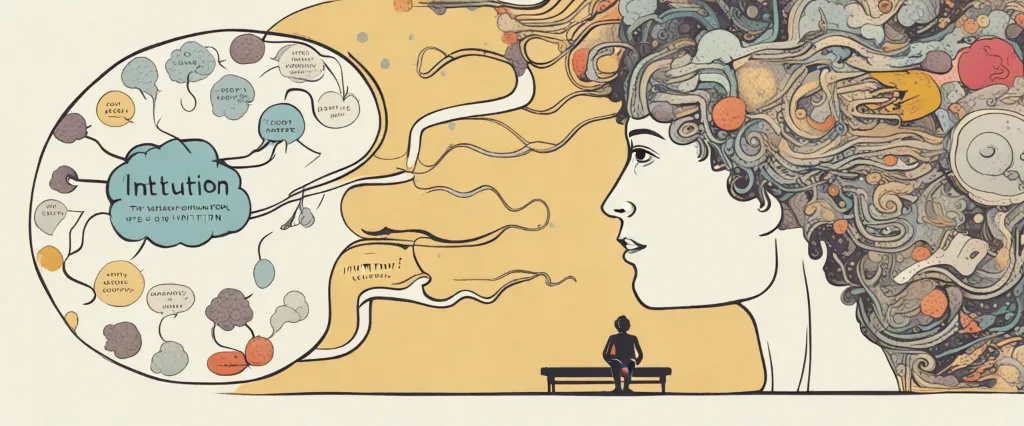
In the intriguing world of non-fiction literature, authors often delve into the depths of human nature, uncovering remarkable insights that shape our understanding of ourselves and our bodies. Giulia Enders’ Gut and Matthew Walker’s Why We Sleep are two such captivating works. Both books offer profound perspectives on two essential aspects of our lives – our digestive system and our sleep patterns. Enders and Walker provide intricate explorations of these bodily functions, shedding light on their significance in maintaining our overall well-being.
While Gut by Giulia Enders primarily investigates the enigmatic universe existing within our intestines, Why We Sleep by Matthew Walker delves into the enigmatic world of sleep. These works, although distinct in their focuses, are interconnected, as they offer profound revelations about the intricate interplay between our gut health and sleep patterns. Both authors embark on scientific journeys to enlighten readers about the consequences that arise when these vital bodily functions are compromised.
The aim of this comparative study is to examine and analyze the similarities and differences between Gut and Why We Sleep, highlighting the crucial role played by our gut health and sleep habits in maintaining our physical and mental well-being. By delving into the depths of these two works, our investigation will decipher the scientific research, personal anecdotes, and persuasive arguments presented by both authors. Through this exploration, we will unveil the vital connections between gut health and sleep, evaluating the impacts of these bodily processes on our everyday lives.
By comparing the perspectives, methods, and insights provided in both books, our study endeavors to deepen our understanding of the integral relationship between our gut and sleep. Moreover, it hopes to shed light on the implications of this interplay for individuals seeking to enhance their overall health and well-being.
In the following sections of this comparative study, we will explore the key themes addressed by Enders and Walker, analyzing their scientific research and personal narratives. By examining the scope of their work, our aim is to highlight the vital connections between gut health and sleep, providing readers with a comprehensive overview of the significance of these bodily functions in our lives.
Through this comparative exploration, we seek to demonstrate how Gut and Why We Sleep contribute distinct, yet complementary perspectives on our understanding of human physiology. Moreover, we aim to emphasize the transformative power of knowledge in empowering individuals to make informed decisions regarding their gut health and sleep patterns.
Join us on this enlightening journey as we uncover the fascinating world within our bodies, where the intricacies of our gut and the mysteries of sleep converge to shape our physical and mental well-being.
Brief Summary of Two Books
Gut by Giulia Enders
“Gut: The Inside Story of Our Body’s Most Underrated Organ” by Giulia Enders is a nonfiction book that explores the complex and fascinating world of the human digestive system. In a fun and accessible manner, the author takes readers on a journey through the various organs, bacteria, and processes that make up the gut.
Enders begins the book by explaining the basics of digestion, discussing the role of the different organs involved and how they work together. She then delves into the intricate and vital relationship between our gut and the vast community of microorganisms residing within it. Enders explores the crucial role these bacteria play in digestion, immune function, brain health, and various other facets of our overall well-being.
Throughout the book, Enders tackles various common misconceptions regarding diet and digestion. She offers insightful explanations and debunks several myths around topics like weight loss, food intolerances, and the impact of stress on our gut health. She also sheds light on the gut-brain connection, examining how our emotions, thoughts, and mental health can influence our digestive system, and vice versa.
Furthermore, Enders addresses specific disorders like irritable bowel syndrome (IBS), gut allergies, and the impact of antibiotics on gut bacteria. She provides suggestions for managing these conditions as well as general advice for maintaining a healthy gut. Additionally, the book explores intriguing aspects such as the correlation between gut health and skin conditions, autoimmune diseases, and obesity.
Enders combines scientific knowledge with personal anecdotes and humor to engage readers with her subject matter. She presents complex concepts in an accessible manner, making the book suitable for both scientific and non-scientific backgrounds. Gut” is a comprehensive guide to understanding the importance of our digestive system and how we can promote better gut health for overall well-being.
Why We Sleep by Matthew Walker
“Why We Sleep” by Matthew Walker is a comprehensive exploration of sleep in all its aspects. The book covers a wide range of topics related to sleep, including its fundamental role in promoting physical and mental health, how it affects our everyday functioning, and how our modern lifestyles often compromise our sleep patterns.
Walker delves into the biological mechanisms behind sleep, explaining the different stages and cycles we go through each night. He highlights the importance of both rapid eye movement (REM) and non-rapid eye movement (NREM) sleep, and how they contribute to memory consolidation, learning, and emotional regulation.
The book also addresses the detrimental effects of sleep deprivation, emphasizing how it can lead to a wide range of health problems, such as obesity, diabetes, cardiovascular diseases, and mental health disorders. Sleep deprivation also compromises immune system functioning, making individuals more susceptible to infections.
Walker examines the societal factors that contribute to insufficient sleep, such as long work hours, shift work, and the use of electronic devices before bed. He also explains the consequences of these behaviors, including impaired cognitive performance, reduced creativity, and increased risk of accidents.
In addition to understanding the negative consequences of inadequate sleep, Walker offers practical tips and strategies for improving sleep quality. He provides evidence-based recommendations on creating a sleep-friendly environment, establishing consistent sleep schedules, and developing healthy sleep habits.
“Why We Sleep” is a compelling and informative book that highlights the essential role of sleep in our lives. Walker’s extensive research and accessible writing style make this book a must-read for anyone interested in optimizing their health, performance, and well-being through better sleep.
Comparison between Two Books

Similarities in Body Health
Gut by Giulia Enders and Why We Sleep by Matthew Walker are both informative books that discuss the importance of body health from different perspectives. While Gut primarily focuses on the digestive system and the impact it has on overall health, Why We Sleep delves into the significance of sleep for maintaining optimal body function. Despite their different topics, these books share some similarities when it comes to understanding body health.
1. Holistic Approach: Both books highlight the interconnectedness of different bodily functions and systems. Gut emphasizes the influence of the gut microbiome on various aspects of health beyond digestion, including immunity and mental well-being. Why We Sleep recognizes how sleep impacts multiple bodily processes, such as hormone regulation, metabolism, and cognitive function. Both authors emphasize that a healthy body requires an understanding of its complex interactions.
2. Lifestyle Factors: Both Enders and Walker stress the significance of lifestyle choices in maintaining good health. Gut explores the impact of diet, stress, and exercise on gut health, emphasizing the importance of a balanced lifestyle for optimal digestion. Why We Sleep, on the other hand, delves into the effects of modern-day habits such as caffeine consumption, irregular sleep schedules, and night-time exposure to electronic devices. Both books emphasize the need for conscious lifestyle choices to support body health.
3. Chronic Conditions: Both authors discuss the potential consequences of neglecting body health, particularly in relation to chronic conditions. Gut presents the role of the gut microbiome in chronic conditions such as obesity, allergies, and autoimmune diseases, stressing the need to take care of the digestive system to prevent such ailments. Why We Sleep highlights the links between insufficient sleep and chronic diseases like cardiovascular issues, diabetes, and neurodegenerative disorders. Both books underline the long-term implications of poor body health and the importance of prevention.
4. Emerging Research: Gut and Why We Sleep integrate scientific research into their discussions on body health. Both authors present evidence from studies and clinical trials to substantiate their claims about the impact of gut health and sleep on overall well-being. They also acknowledge the evolving nature of scientific understanding, citing ongoing research that explores new connections between body health and various conditions.
In conclusion, Gut by Giulia Enders and Why We Sleep by Matthew Walker touch upon different aspects of body health but exhibit similarities in approaching the topic from a holistic perspective, emphasizing the influence of lifestyle choices, discussing chronic conditions, and involving evidence-based research. These books collectively contribute to a comprehensive understanding of body health and the importance of maintaining it for overall well-being.
Divergences in Body Health
Gut by Giulia Enders and Why We Sleep by Matthew Walker are two popular non-fiction books that delve into the fascinating world of the human body. While Gut mainly focuses on the digestive system and its impact on overall health, Why We Sleep dives deep into the realm of sleep and its significance for our well-being. Despite their different foci, both books share a common goal of educating readers about the importance of maintaining a healthy body.
In Gut, Giulia Enders explores the complexities of our digestive system, discussing the role of gut bacteria, the process of digestion, and its influence on our overall health. Enders emphasizes the critical link between the gut and various bodily functions like immunity, mental well-being, and even weight management. Through a combination of scientific explanations and relatable anecdotes, the book highlights the importance of maintaining a healthy gut to optimize overall body health.
On the other hand, Why We Sleep by Matthew Walker explores the equally crucial role of sleep in maintaining optimal health. Walker presents a wealth of research on sleep, discussing its impact on cognitive function, emotional well-being, metabolism, and immune system. The book delves into the detriments of sleep deprivation and offers practical advice on improving sleep quality, ultimately emphasizing the indispensable connection between sleep and overall body health.
While Gut predominantly focuses on the gut and digestion, and Why We Sleep revolves around the importance of sleep, these books do intersect on the topic of body health. Both Enders and Walker highlight how the conditions of our gut and our sleep patterns significantly affect our overall well-being. They stress that neglecting these factors can lead to various health issues, including weakened immunity, higher risk of chronic diseases, and impaired mental function.
The divergence between Gut and Why We Sleep lies in their specific areas of focus and the mechanisms through which they impact body health. While Gut primarily emphasizes the importance of maintaining a healthy gut to promote overall well-being, Why We Sleep underscores the essential role that adequate sleep plays in facilitating optimal body functioning. These books provide unique insights into different aspects of body health and provide readers with a comprehensive understanding of the importance of both gut health and sleep for overall well-being.

Conclusion
Both Gut by Giulia Enders and Why We Sleep by Matthew Walker are highly regarded books in their respective fields. It ultimately depends on your personal interests and preferences.
If you are interested in learning about the human digestive system, the role of the gut in overall health, and the impact of gut health on various aspects of our lives, then Gut by Giulia Enders is a fantastic choice. Enders presents the information in an engaging and accessible manner, making it an enjoyable and informative read for anyone interested in understanding their own digestive system.
On the other hand, if you are interested in understanding the importance of sleep in our lives, the science behind sleep, and the impact of sleep (or lack thereof) on various aspects of our health and well-being, then Why We Sleep by Matthew Walker is the book for you. Walker delves into the deep research on sleep and provides practical advice on improving our sleep quality.
Both books have received positive feedback from readers and have been praised for their ability to communicate complex scientific concepts in an understandable way. If you have a particular interest in one topic over the other, it would be wise to choose the book that aligns with that interest.


